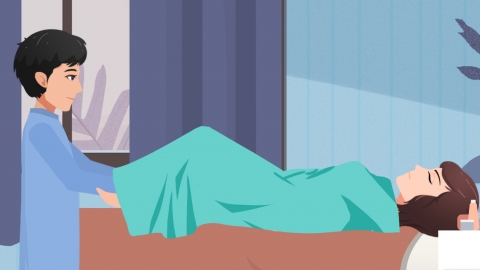What to do about poor uterine involution
Generally, poor uterine involution after childbirth may be caused by insufficient postpartum rest, excessive physical strain too soon after childbirth, weak uterine contractions, retained placental or fetal membrane tissues, or intrauterine infection. It is recommended to seek timely medical attention to identify the exact cause and then, under a physician's guidance, improve symptoms through general treatment, medication, or surgical intervention. A detailed explanation is as follows:

1. Insufficient postpartum rest: The body is generally weak after childbirth, and inadequate sleep or mental stress can hinder physical recovery and impair uterine involution. Adequate sleep should be ensured, mental stress reduced, and sufficient rest taken to promote self-repair.
2. Excessive physical strain too soon after childbirth: Engaging in heavy physical labor or strenuous exercise too early after delivery can increase the burden on the uterus and interfere with its contraction and recovery. Physical activity should be gradually increased, early heavy lifting avoided, and appropriate pelvic floor muscle rehabilitation exercises performed.
3. Weak uterine contractions: Weakened uterine muscle contractions after childbirth may fail to effectively compress blood vessels or expel lochia, leading to poor uterine involution. Patients can take medications as directed by a physician, such as Oxytocin Injection, Misoprostol Tablets, or Motherwort Granules, to enhance uterine contractions.
4. Retained placental or fetal membranes: After childbirth or miscarriage, residual placental or fetal membrane tissues remaining in the uterine cavity may interfere with uterine contraction and cause poor involution, possibly accompanied by prolonged lochia discharge. When the residue is minimal, medications such as Oxytocin Injection, Motherwort Soft Capsules, or Wu Jia Sheng Hua Capsules may be taken as directed to promote expulsion. When the residue is significant, a dilation and curettage (D&C) procedure is required to remove the retained tissue and promote uterine recovery.
5. Uterine infection: Bacterial infection of the uterine cavity after childbirth or surgery can lead to inflammation that impairs uterine contraction and causes poor involution, possibly accompanied by symptoms such as fever and foul-smelling lochia. Patients may take medications such as Cefuroxime Axetil Tablets, Metronidazole Tablets, or Amoxicillin and Clavulanate Potassium Tablets as directed by a physician to control the infection.
Daily care should include maintaining external genital hygiene, frequently changing sanitary products, avoiding tub baths and sexual intercourse to prevent infection. Additionally, closely monitor the volume, color, and odor of lochia, and enhance nutrition by consuming foods rich in protein and vitamins to support recovery.




